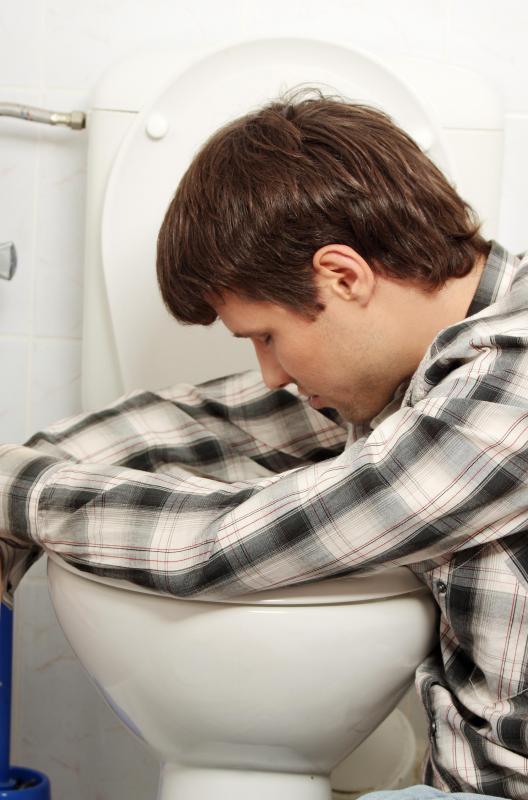At WiseGEEK, we're committed to delivering accurate, trustworthy information. Our expert-authored content is rigorously fact-checked and sourced from credible authorities. Discover how we uphold the highest standards in providing you with reliable knowledge.
What is Hypochloremia?
For a variety of reasons, the body’s electrolytes can lose their perfect balance and become present in the body in greater or lesser supply than is needed. When electrolytes like chloride, sodium or potassium become imbalanced, this can have a very negative effect on the body. One condition, called hypochloremia, refers to levels of chloride electrolytes that are too low, and as with any electrolyte imbalance, this condition poses risk to health and may need treatment right away.
There are different circumstances that might cause hypochloremia. It may result from things like very bad stomach flus that cause significant nausea or vomiting in a short period of time. People might get hypochloremia if they perspire too much, usually in association with a high fever. It’s not difficult to see how a stomach flu or bacterial intestinal infection might create all the circumstances needed to result in, at least, mild hypochloremia.

There are more serious causes of this condition, including failure to thrive in infants, anorexia, or tube-feeding. Infants who are hospitalized with other medical conditions seem particularly prone to very severe cases. Adults might get mildly hypochloremic from laxative or antacid abuse. Alternately, since the kidneys regulate production of chloride, if no other cause is found, hypochloremia might suggest some forms of kidney disease in children or adults.

Except in the most aggravated cases when chloride depletion leads to alkalosis or serious imbalance of acid/base pH, there may be few symptoms of hypochloremia. It might only be noted if people have blood tests that check levels of electrolytes. Yet the condition should always be suspected if a person has suffered huge losses of fluid due to nausea/vomiting or perspiration, and appears in any way to have dehydration. Once electrolytes become unbalanced, greater fluid loss can start to occur. Some people with low chloride levels also seemed confused or disoriented.

In cases in the pediatric patient, especially one who is hospitalized, hypochloremia may be suspected by type of condition a person has. Certain treatments such as taking diuretics may predispose people to this. Children are also more at risk for hypochloremic alkalosis if they have conditions like cystic fibrosis, or congenital chloride-losing diarrhea.

Treatment for low chloride may depend on severity and cause. In some people, simple intravenous fluid replacement with chloride to treat symptoms of dehydration and chloride loss is recommended. Less severe cases might be addressed with oral fluid replacement that has appropriate amounts of sodium and chloride. Should the condition be one that recurs, investigation of cause must begin, and this might especially involve consults with kidney specialists.

Hypochloremia is not an illness that can usually be treated successfully at home. Most people require medical treatment right away if they show signs of it. In any circumstance where dehydration has occurred or is occurring, it’s recommended that people get to a doctor or hospital immediately. Any one of a number of electrolytes may increase or decrease due to loss of significant fluids, resulting in serious medical consequences.
AS FEATURED ON:
AS FEATURED ON:

















Discuss this Article
Post your comments